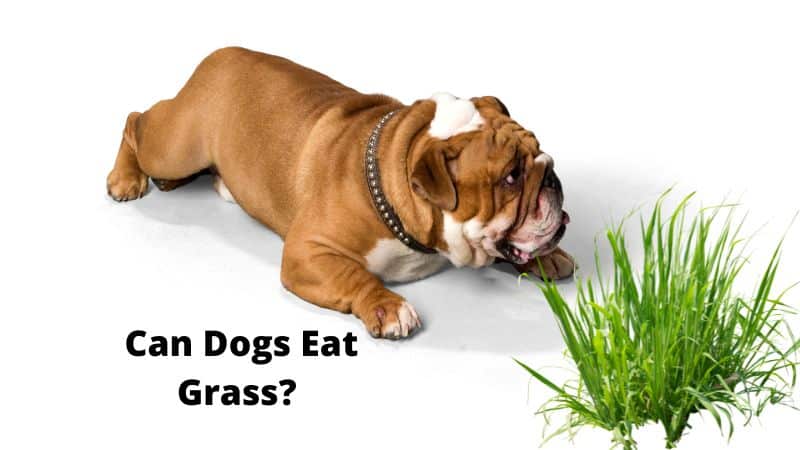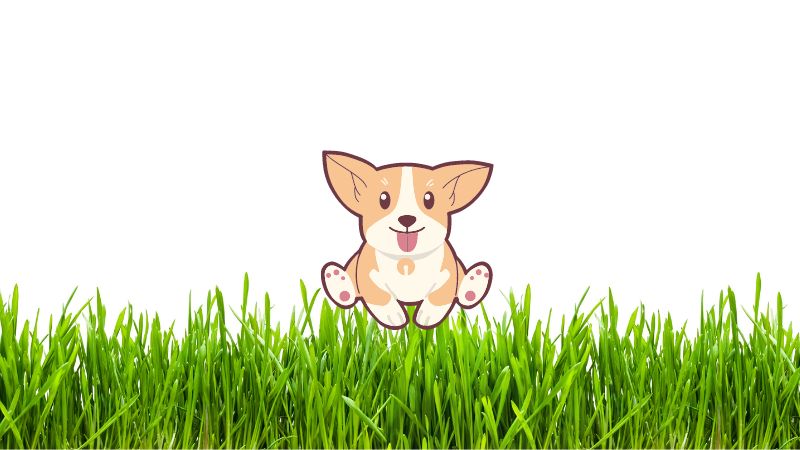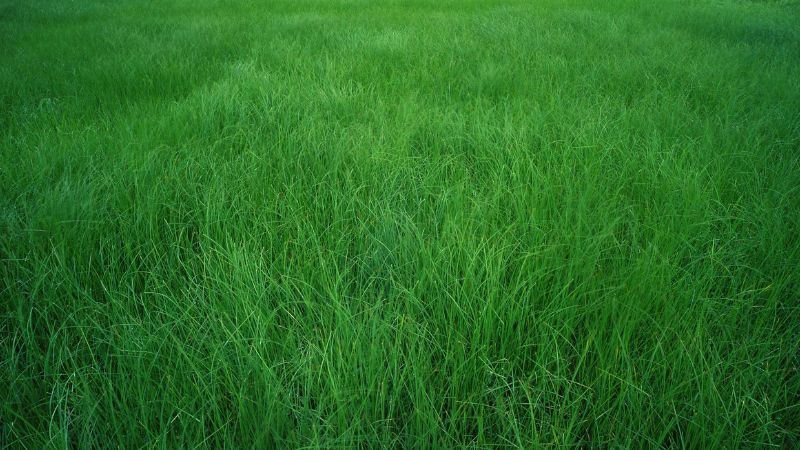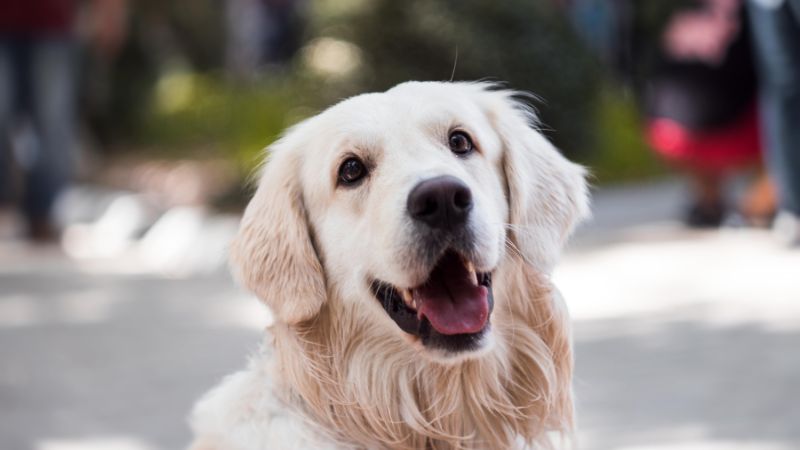
Can Dogs Eat Grass?
Is your dog prone to eating grass during a walk? In most cases, eating occasionally is fine after considering the type of grass and herbicides used. However, if your dog overeats or has symptoms like diarrhoea, your dog may be sick. Here we will discuss why dogs eat grass, possible diseases at that time, and types of grass dogs shouldn’t eat.
Dogs eat grass, which may cause diseases.

We will first explain why dogs eat grass and what diseases may be responsible for it.
vomit
Dogs eat grass because they vomit when experiencing nausea or heartburn due to stomach upset. It is possible to vomit only gastric juice or not vomit at all, even though it is vomiting.
Additionally, grass has a sharp tip that stimulates the stomach, making it easier to vomit undigested food and excess stomach acid.
In addition, when a foreign substance, such as a cigarette butt, is accidentally swallowed or the coat accumulates in the stomach after licking, grass may be eaten to spit them out.
Grass eating by dogs is something they do to regulate their intestines, so you don’t have to worry too much, but if your dog is eating grass frequently, losing appetite, or having diarrhoea, they may have gastritis, so you should consult a veterinarian.
Several diseases can cause heartburn symptoms, so we recommend seeing a doctor. In puppies and growing dogs, intestinal parasites can also be parasitized by placental infections, causing gastrointestinal disorders.
Vitamins and fibre supplements
The main ingredient in dog food is meat, so only eating that can leave your dog deficient in vitamins and fibre. To compensate for this, dogs sometimes eat grass.
Grass-loving
It is common for puppies, in particular, to want to put everything in their mouths. For the first time, the dogs like the taste and texture of grass so much that they eat it repeatedly. Dogs that like to eat grass also eat grass when they lack food or are hungry.
Because you are not eating grass to regulate your intestines, you won’t vomit if you eat grass because you like it, but dogs are not designed to digest grass, so they often can’t digest it.
Grass types that dogs like to eat

Dogs tend to prefer long grasses, probably because plants like Encolours and annual bluegrass have pointed tips. Additionally, they consume thaliana.
Dogs should not eat the grass!
Dogs can consume grass without harm, but some grass types can cause poisoning symptoms.
Due to dogs’ excellent sense of smell, they often eat dangerous grass, so owners should know what kind of grass to watch out for.
Is it dangerous to eat dangerous grass?

The consumption of grass that dogs shouldn’t eat can irritate their tongues, lips, and mouths, as well as allergic reactions such as sneezing and coughing.
Other symptoms include vomiting, dizziness, convulsions, paralysis, diarrhoea, bloody stools, hematemesis, loss of appetite, multiple organ damage, respiratory failure, and in the worst case, even death. You should be examined at a veterinary clinic for any of these symptoms.
Types of grass that should not be eaten

Let’s discuss the types of grass that dogs should not eat.
Bulbs
Tulips, hyacinths, amaryllis, narcissus, cyclamen, etc.
Bulbs are said to be poisonous even to bulbs, so special care must be taken.
Lilies are plants in the family of Liliaceae.
Among them is lily of the valley, asparagus, onion, chives (shallow onion), dog saffron, etc. Hyacinths and tulips, which are introduced in spring
There are also bulbous species in the lily family.
Plants of the Ericaceae family
The Asebi azalea, the azalea, the rhododendron, etc.
Other plants
Chrysanthemums, hydrangeas, higanbana, yew, aloe, jasmine, morning glory, pothos, cherries, marigolds, etc.
Grass on which herbicides are sprayed
Herbicides and other chemicals may be sprayed on grass growing along the roadside. Herbicides are often spread in urban and residential areas during the summer, so be careful. Additionally, if you eat roadside grass unnecessarily, you may become infected with parasites and bacteria.
What if I accidentally eat it?
If you eat grass, you shouldn’t lick a small amount of salt, drink plenty of water as first aid, and immediately seek medical attention at a veterinary clinic.
Do not give salt to your dog if it has gastrointestinal or hepatic problems, as it can cause another disease.
Preventive measures to prevent your dog from eating dangerous grass
While it is safe to check all types of grass on the walking course to prevent your dog from eating difficult grass, it is pretty challenging, so it is better to understand why your dog eats grass and control it accordingly.
Eating grass and vomiting
The best option is to buy commercial dog grass. It is a type of grass called Baku, and you can buy it at home centers, garden supply stores, and pet stores. As a grass, oats are also popular with cats and are safe to eat.
Lack of vitamins and fiber
Ensure that your daily diet provides them with the nutrients they need. In addition to your dog’s usual food, you should add a little cabbage, carrots, lettuce, radishes, Chinese cabbage, sweet potatoes, pumpkin, etc., to supplement vitamins and fiber.
The process also helps prevent heartburn and makes it easier for hairballs to appear along with the stool.
Have a fun walk and know what grass dogs should not eat.
On walking paths, such as parks and riverbeds, many types of grass are dangerous for dogs to eat. It’s impossible to enjoy a walk if your dog is sick.
In cases where your dog eats much grass or has no appetite, you should seek medical attention and know what grass your dog should not eat.
Frequently Asked Questions
Can my dog eat grass?
How safe is it for my dog to eat grass? It is considered safe for otherwise healthy dogs to consume grass when they are on regular parasite-prevention medication. Ensure no herbicides, pesticides, or fertilizers are on the grass your dog nibbles on.
Can dogs get sick from eating grass?
There has been an observation of wild dogs eating grass, too, and this may be a completely natural behaviour, and it does not usually cause too many problems. In most cases, veterinarians consider it normal dog behaviour.
Why do dogs eat grass?
Anxiety and boredom are common psychological causes of grass-eating. In many ways, this behaviour is similar to people who bite their nails. Consider psychological factors if your dog isn’t displaying any digestive symptoms yet relentlessly eats grass.
Leave a Reply